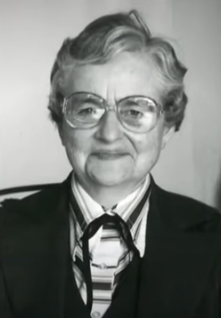Introduction to Maria Corina Machado
Born in 1967 in Venezuela, Maria Corina Machado has emerged as a pivotal figure in the landscape of Venezuelan politics and society. Raised in a culturally vibrant environment, she was instilled with values of integrity and commitment from an early age. Her academic journey began at the Central University of Venezuela, where she earned a degree in industrial engineering. Following this, she furthered her education at George Washington University, acquiring a master’s degree in public administration. This combination of engineering and finance has equipped her with a unique skill set that she would apply to her future engagements in public service and advocacy.
Machado’s professional career initially took shape in the private sector, where she successfully navigated roles in various corporations. However, driven by a deep commitment to her country and its people, she transitioned to public service. Her entry into the political arena was marked by her passionate advocacy for democratic values and human rights. Since then, she has spent her efforts dismantling the authoritarian regime that has plagued Venezuela for years. Her determination to foster democratic principles in a country that has seen a steady decline in civil liberties highlights her significance as a leader.
Throughout her journey, Machado has become synonymous with the struggle for democracy in Venezuela. She has tirelessly worked to empower citizens, emphasizing the importance of political engagement and social justice. Her efforts have not only garnered national attention but have also positioned her as a respected figure on the international stage, advocating for a return to democracy. As she continues her work, her background and experiences have shaped her into a beacon of hope for many Venezuelans aspiring for change.
The Context of Authoritarianism in Venezuela
Venezuela’s socio-political landscape has undergone significant transformation over the last two decades, primarily characterized by the rise of authoritarianism under Hugo Chávez and subsequently, Nicolás Maduro. The roots of this regime can be traced back to the late 1990s, when Chávez capitalized on widespread discontent with traditional political structures that were plagued by corruption and inequality. His election in 1998 marked the beginning of a shift towards a populist government, which gradually centralized power and marginalized opposition.
The challenges faced by Venezuelan citizens intensified as Chávez implemented a series of socialist policies intended to reduce poverty and distribute wealth. Initially, these policies garnered considerable support; however, they evolved into a system characterized by repression and control. Following Chávez’s death in 2013, Maduro’s ascent to power exacerbated the situation, leading to increased political violence, economic collapse, and mass emigration. Under Maduro, dissent has been met with brutal crackdowns, and the state has employed tactics such as censorship and imprisonment of political opponents to maintain control.
The government’s approach to governance has systematically dismantled democratic institutions and undermined the rule of law, manifesting a climate where civil rights are largely disregarded. Venezuelans endure daily struggles, including food shortages, hyperinflation, and a healthcare crisis. In this context, voices like Maria Corina Machado have emerged as vital agents of change. Machado, a prominent opposition leader, embodies the aspirations of a population yearning for a return to democracy and human rights. Her relentless pursuit of reform amid such hardship reflects a broader resistance against an oppressive regime, emphasizing the crucial interplay between socio-political dynamics and the quest for democratic principles in Venezuela.
Foundational Work: The Atenea Foundation
In 1992, Maria Corina Machado established the Atenea Foundation, a pivotal non-profit organization dedicated to the welfare of street children in Caracas, Venezuela. The foundation was born out of a profound commitment to addressing the dire social issues that plague the nation. Recognizing the urgent need for targeted intervention, Machado aimed to provide these vulnerable children not only with basic needs but also with opportunities for development and education.
The primary mission of the Atenea Foundation centers on improving the lives of children who find themselves in precarious and often perilous situations on the streets. Through a series of outreach programs, the foundation has worked tirelessly to extend support and resources that facilitate access to education, health care, and psychological assistance. This holistic approach has proven vital in breaking the cycle of poverty and neglect that many of these children encounter.
Machado’s efforts with the Atenea Foundation underscore her deep commitment to social justice and her belief in the potential of every child to thrive, regardless of their background. The organization has become a crucial player in advocating for the rights of children in Venezuela, offering a voice for those who are often marginalized and overlooked. By leveraging partnerships with local communities and other organizations, Atenea has successfully promoted initiatives that prioritize the welfare of street children, thereby addressing some of the broader social problems in Venezuelan society.
Through her work with the Atenea Foundation, Maria Corina Machado has highlighted the necessity of grassroots movements in uplifting communities. Her tireless advocacy and dedication have not only made a significant impact on the lives of countless children but also set a powerful example of leadership centered on humanitarian values. The foundation stands as a testament to her lifelong commitment to fostering a more equitable society, particularly for the most disadvantaged members of the community.
Championing Free Elections: The Formation of Súmate
Súmate, a notable non-profit organization established by Maria Corina Machado and her colleagues, has played an instrumental role in advocating for free and fair electoral practices in Venezuela. Founded in 2002, its primary mission is to promote democracy and citizen participation throughout the electoral process. The establishment of Súmate was a critical response to the increasing challenges faced in safeguarding electoral integrity in a country marked by political tumult and alleged government malfeasance.
One of the essential functions of Súmate is its comprehensive election monitoring efforts. This organization mobilizes citizens to become engaged observers during elections, ensuring transparency and accountability at each electoral step. By training volunteers to monitor polling stations and election procedures, Súmate significantly contributes to building public trust in the electoral framework. The presence of such trained monitors discourages potential electoral fraud and provides a platform for citizens to exercise their democratic rights effectively.
Moreover, Súmate emphasizes the importance of public education regarding electoral processes. With various outreach programs, the organization equips Venezuelans with the knowledge necessary to navigate the complex political landscape. Through workshops and seminars, Súmate educates citizens about their rights, helping to foster a politically informed populace capable of advocating for its democratic freedoms. This proactive approach is vital in a country where misinformation can rapidly proliferate.
Overall, the formation of Súmate represents a significant advancement towards promoting electoral fairness in Venezuela. Its multifaceted role in training and mobilizing citizens creates a robust framework for defending democracy. As the organization continues to champion free elections, it stands as a beacon of hope for those advocating for democratic rights in a challenging political environment.
Political Rise: National Assembly and Democratic Leadership
Maria Corina Machado’s ascent to the National Assembly of Venezuela in 2010 marked a significant milestone in her political career. Her election was a record-breaking achievement, as she became one of the first women to lead a major opposition party in a predominantly male political landscape. Her victory was not only a personal triumph but also a testament to her ability to galvanize support among the electorate, particularly in a society that was increasingly disillusioned with the prevailing political regime.
Upon her election, Machado quickly established herself as an influential figure within the National Assembly. She championed various democratic reforms and human rights initiatives, advocating for accountability and transparency in governance. Her articulate criticism of the government’s policies resonated with many Venezuelans who sought change. Machado’s dedication to democratic principles made her a prominent voice for those yearning for a restoration of rights and liberties in a country plagued by crisis.
Machado’s experiences during and after her time in the National Assembly illustrate her unwavering commitment to democratic leadership. Her ability to navigate the complexities of Venezuelan politics, coupled with her tenacity, has cemented her reputation as a beacon of hope. Despite facing immense challenges, she remains determined in her pursuit of democratic values, making her an exemplary figure in contemporary politics.
Leading the Opposition: Vente Venezuela and Soy Venezuela Alliance
Maria Corina Machado emerged as a pivotal leader in the Venezuelan political landscape through her role in the Vente Venezuela party. Founded in 2014, Vente Venezuela is a political organization that espouses democratic ideals and aims to restore constitutional order in the country. Under Machado’s stewardship, the party has not only broadened its base of support but has also aimed to unify various pro-democracy factions that have historically been fragmented. She has articulated a vision for the nation that emphasizes the rule of law, human rights, and social justice, providing a framework for those disillusioned by the authoritarian policies of the current regime.
The establishment of the Soy Venezuela alliance further underscores Machado’s commitment to consolidating opposition forces in the fight for democracy. Formed in early 2020, this alliance brought together diverse groups, including political parties, civil society organizations, and grassroots movements, all united by a common agenda to confront the challenges posed by authoritarian rule. Machado’s strategic acumen has allowed her to gather support from a wide array of stakeholders, despite the significant political divides that often hinder collaboration among opposition factions.
The Soy Venezuela alliance seeks to foster a collective approach toward achieving democratic governance, encouraging collaboration instead of competition among pro-democracy entities. By presenting a united front, Machado and her allies aim to challenge the prevailing power structures and amplify the voice of the Venezuelan populace yearning for change. This inclusive approach not only inspires hope among citizens facing the hardships of an oppressive regime but also lays the groundwork for a viable path toward restoring democracy in Venezuela. Through her leadership, Maria Corina Machado has become a symbol of resistance, advocating for the principles of democracy, freedom, and social equity.
2023 Presidential Bid and Political Challenges
Maria Corina Machado’s candidacy for the presidency in the upcoming 2024 elections represents a key moment in Venezuela’s turbulent political landscape. As a prominent figure advocating for democracy and human rights, Machado aimed to challenge the status quo and offer a renewed vision for the country. However, her path to the presidency was severely obstructed by various political maneuvers designed to eliminate her from the electoral equation. In 2023, Machado was officially blocked from running, a move perceived by many as an attempt to stifle any genuine opposition to the current regime.
In light of her disqualification, Machado demonstrated unwavering dedication to the cause of democracy by voicing her support for Edmundo Gonzalez Urrutia, an alternative candidate who emerged in the face of adversity. This decision indicated Machado’s commitment not only to her political ideals but also to fostering unity among opposition forces. Despite the challenges she faced, her endorsement of Gonzalez Urrutia aimed to mobilize voters dissatisfied with the prevailing political conditions and to ensure that the movement for change persisted, even if her name was not on the ballot.
As Venezuela approached the elections, allegations of electoral irregularities proliferated amid government claims of a secure victory. Machado and her supporters took action by initiating organized efforts to document these discrepancies. This initiative underscored her resilience and strengthened the resolve of those advocating for a transparent electoral process. The dual challenges of being barred from candidacy and the broader political clampdown highlight Machado’s struggle as a symbol of hope in a country that desperately seeks democratic renewal.
Maria Corina Machado’s Nobel Peace Prize 2025
Maria Corina Machado’s recognition as the recipient of the Nobel Peace Prize in 2025 serves as a significant milestone in the global journey towards democracy and human rights advocacy. Her relentless efforts to champion democratic reforms in Venezuela have not only garnered national attention but have also highlighted the larger struggle for freedom and justice across the globe. The Nobel Committee’s decision to honor Machado underscores the importance of her work in a nation grappling with severe political turmoil and authoritarianism.
This prestigious accolade comes at a crucial juncture when democratic values are increasingly under threat worldwide. Machado’s advocacy goes beyond the Venezuelan context, positioning her as a representative figure of the rights of individuals fighting against oppressive regimes. The Nobel Peace Prize symbolizes a moral endorsement of the principles she fervently defends: political freedom, economic opportunity, and the right to dissent. By awarding Machado with this honor, the committee sends a powerful message that the international community stands in solidarity with those who fight for democracy, justice, and self-determination.
Furthermore, Machado’s receipt of the Nobel Peace Prize can inspire burgeoning movements for change in other regions facing similar challenges. Her story becomes a narrative of resilience, one that can motivate activists and ordinary citizens alike to advocate for their rights and challenge the status quo. The implications of her recognition extend beyond borders, signaling to other leaders that the pursuit of democracy, though fraught with challenges, is a worthwhile endeavor deserving of both national and international support.
Ultimately, Maria Corina Machado’s Nobel Peace Prize in 2025 embodies hope and a call to action for advocates of democracy everywhere, reinforcing the idea that individual contributions to the fight for freedom can resonate on a global scale.
The Global Struggle for Democracy
Maria Corina Machado stands out as an emblematic figure in the contemporary landscape of global democracy movements. In an era where the retreat of democratic principles has become increasingly evident, her advocacy highlights the importance of safeguarding foundational rights such as freedom of expression, the right to vote, and the holding of transparent elections. These elements are essential not only for the sustenance of democracy in Venezuela but also for the promotion of peace and stability in the broader international arena.
Democracy is under siege in various regions worldwide, with authoritarianism and populism gaining ground. In this context, Machado’s unwavering commitment to democratic ideals serves as a call to action for not only Venezuelans but also individuals and organizations globally seeking to uphold human rights. Her efforts emphasize that the fight for democracy transcends national borders, resonating with citizens who yearn for accountability, justice, and freedom.
Furthermore, Machado’s work illustrates the interconnection between democratic governance and international peace. Historical evidence suggests that countries with strong democratic institutions are less likely to engage in conflict. By advocating for elections and civil liberties, Machado not only seeks to restore democracy in Venezuela but also contributes to a more peaceful global landscape. Her role is illustrative of a broader global struggle, where activists and leaders worldwide share a common mission: to resist authoritarianism and advocate for the voice of the people.
In this complex reality, Maria Corina Machado emerges as a beacon of hope. Her commitment to democracy reinforces the principle that empowered citizens are pivotal in the fight against tyranny. As we witness these global challenges, her influence as a proponent of democratic rights accentuates the relevance of activism in fostering resilience against oppressive systems, reminding the world that the struggle for democracy is a collective endeavor necessary for lasting peace.
Conclusion: A Legacy of Hope and Resistance
As we reflect on the life and work of Maria Corina Machado, it becomes evident that her efforts transcend the boundaries of her native Venezuela, inspiring individuals and movements committed to the principles of democracy and human rights worldwide. Throughout her career, Machado has become a symbol of unwavering resolve in the face of severe oppression. Her courageous stance against authoritarianism has illuminated the path towards a democratic society, one characterized by fundamental freedoms and the rule of law.
Machado’s advocacy for democracy amid adversity has not only galvanized her fellow citizens but has also resonated with countless people globally who strive for fundamental reforms in their own countries. By championing transparency, justice, and accountability, she has highlighted the need for sustained resistance against any form of tyranny. Her tireless pursuit of these ideals serves as an inspiration for future generations, bolstering their belief that change is possible, even in the direst circumstances.
Moreover, the enduring legacy of Machado’s work can be seen in the burgeoning youth movements across Venezuela and beyond, which echo her calls for justice and democratic restoration. These young activists carry forward her vision, embodying the principles she has fought for, demonstrating that the spirit of resistance is alive and well in the hearts of those who yearn for a better future.
Ultimately, Maria Corina Machado’s journey offers a powerful narrative of hope. In a world often fraught with turmoil and despair, her resilience serves not only as a beacon for Venezuelans but also as a message of solidarity for all who grapple with the fight for freedom. Her legacy, marked by tenacity and purpose, continues to inspire and uplift those who refuse to yield to oppression and injustice.
About TodayResearcher
At TodayResearcher, we bring you stories that matter. Covering everything from breaking news and world events to lifestyle, entertainment, science, and culture, our editorial team is dedicated to delivering accurate, insightful, and engaging content. We aim to keep readers informed, inspired, and curious about the world around them.



